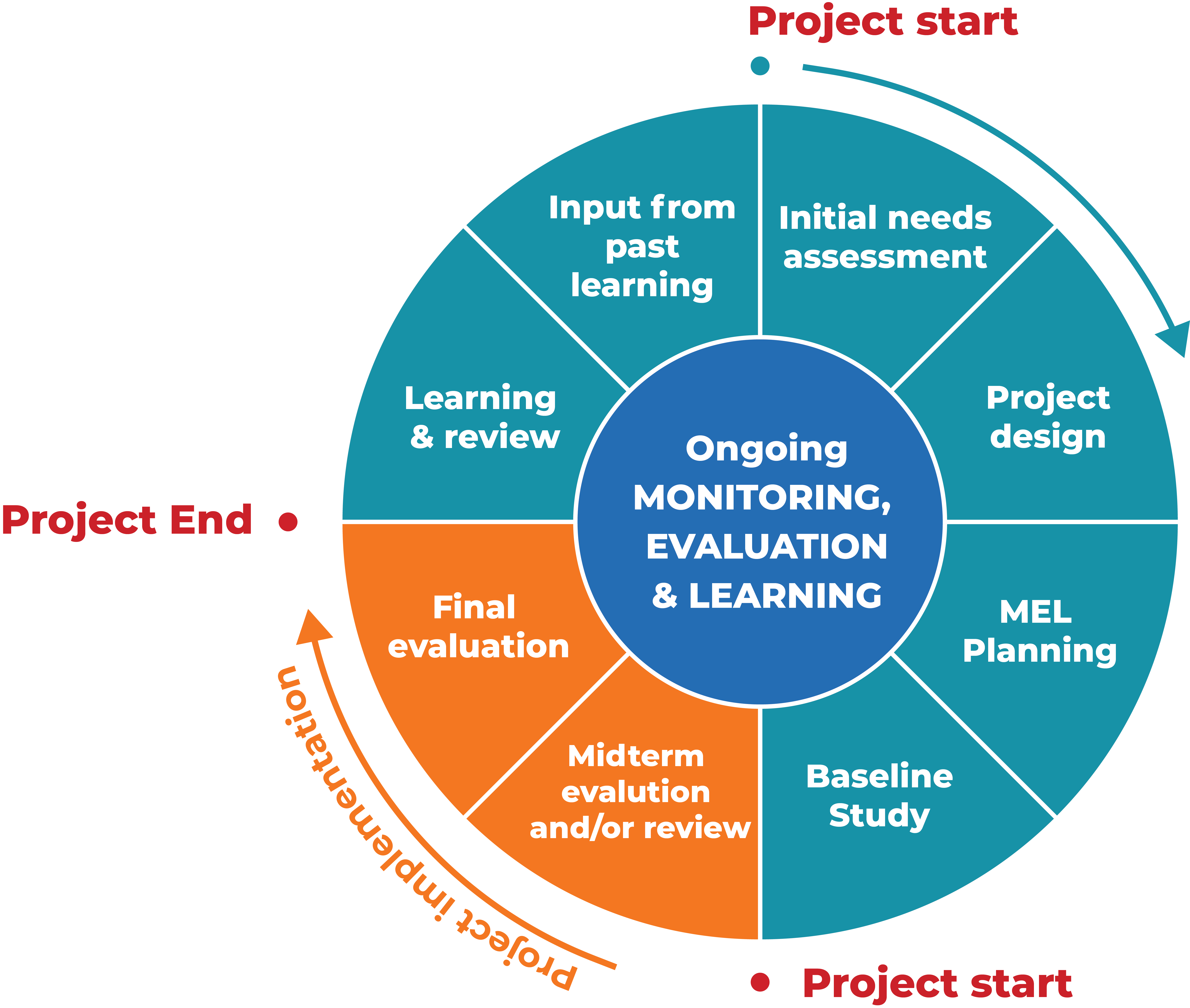

The general focus of the GP&SL MEL unit is to assess the performance of projects, institutions and programmes set up by governments, international organisations, and non-governmental organisations (NGOs). This support service provided by GP&SL helps to improve current and future management of outputs, outcomes, and impact. To us at GP&SL, Monitoring is a continuous assessment of programmes/projects based on early detailed information on the progress or delay of the ongoing assessed activities. An Evaluation is an examination concerning the relevance, effectiveness, efficiency, and impact of activities in the light of specified objectives. Finally, Learning is the process through which information we generate from M&E is reflected upon and intentionally used to continuously improve the organisation’s/a project’s ability to achieve results.

Note that Data Collection experience is embedded in virtually all PMEL assignments, so they are not listed separately.
To provide the kind of service that will not only ensure the retention of our customers but also attract others, we have established partnerships with reputable professionals (as associates) and companies globally.